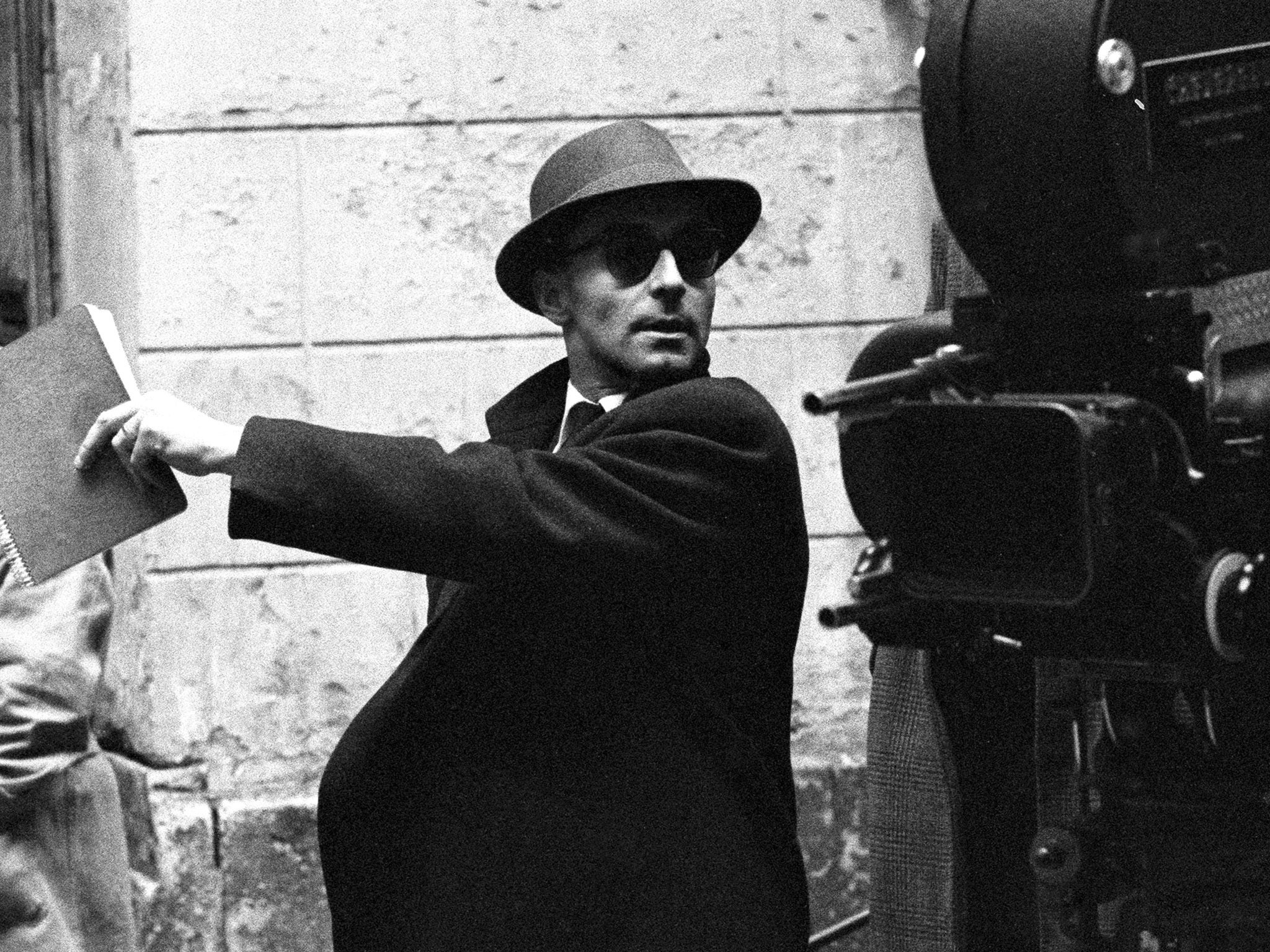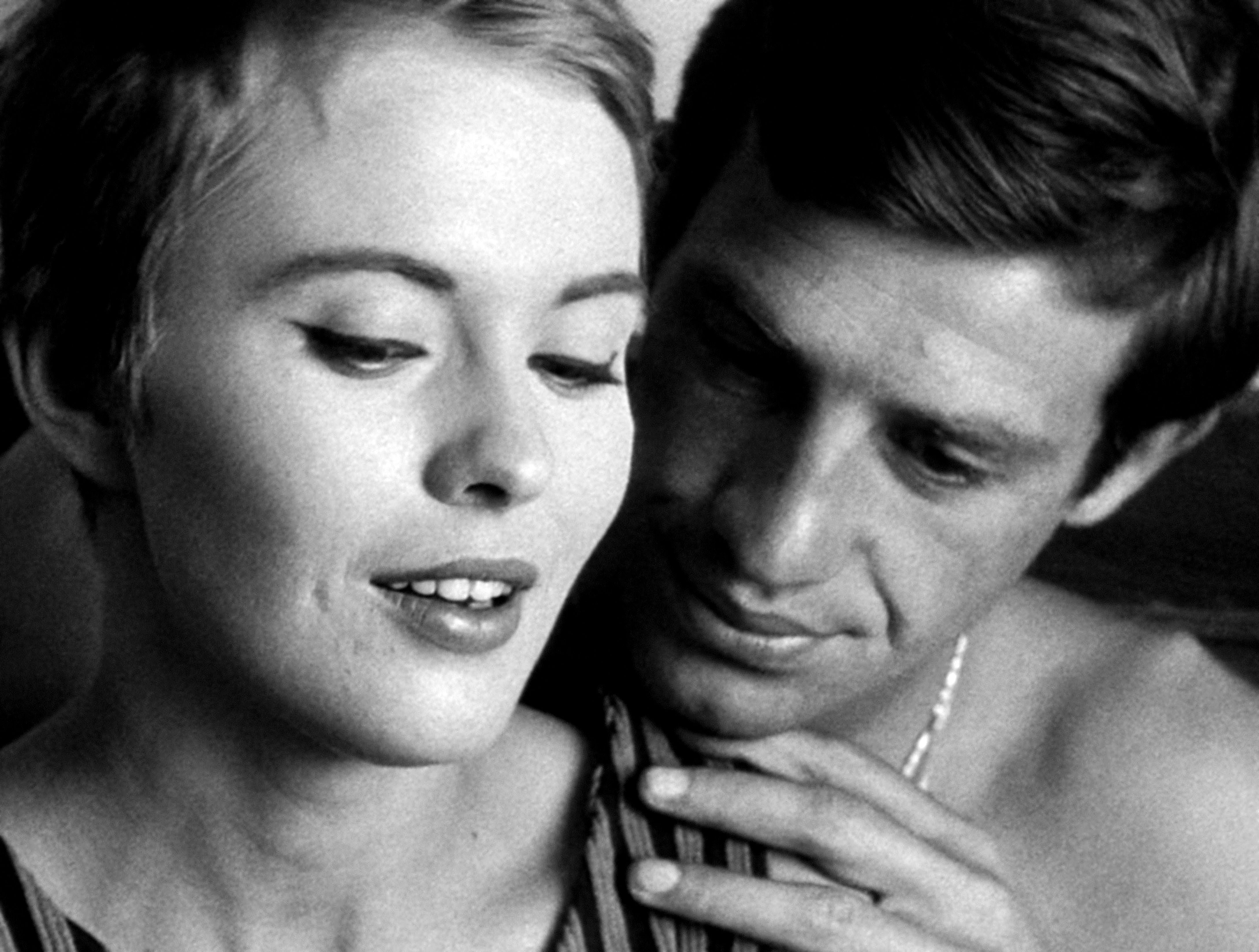Jean-Luc Godard: The New Wave director who always put cinema first
The ‘Breathless’ director, who died today aged 91, was an arch-provocateur but one with a very lyrical eye, says Geoffrey Macnab

In his latter years, Jean-Luc Godard became more and more like the Prospero of world cinema. The director – who died today aged 91 – lived as a recluse in Rolle in Switzerland with his partner Anne-Marie Miéville and didn’t stay in touch with old colleagues and friends. All his contemporaries from the golden period of the 1960s, when the French New Wave revolutionised world cinema, had pre-deceased him. In truth, he had long ago turned his back on most of them anyway. His work had become increasingly experimental and self-reflexive, veering ever further from the mainstream. It’s debatable how much he means to younger cinemagoers today. Nonetheless, Godard is a monumental figure in cinema history, every bit as influential in his own way as Alfred Hitchcock, Charlie Chaplin or Sergei Eisenstein.
Godard lived for and through cinema. On a human level, that was a problem. His relationships often foundered because he always put movies first. Collaborators such as his muse and former wife Anna Karina – who starred in one of his greatest early films Vivre Sa Vie (1962) – always said that they got on far better while they were shooting films than when they were off duty, trying actually to live together. He fell out badly with his old brother-in-arms, François Truffaut, who called him “a piece of shit on a pedestal” because of Godard’s appalling treatment of their friends and collaborators. However, in his work, he never compromised. He never worried about popularity either… and he never stopped. Asked once why he made quite so many films, he replied that he was like the “soldiers in the Russian war who kept marching and marching… they knew that if they laid down, they wouldn’t get back up”.
Breathless (1960) is still probably his best-known feature. With its jump cuts, swaggering star Jean-Paul Belmondo, gamine-like female lead Jean Seberg, and reckless, anarchic energy, it was arresting and very stylish. Godard’s one-liners – “all you need to make a movie is a girl and a gun” and “the cinema is truth 24 frames per second” – quickly passed into movie lore.
He was an arch-provocateur but one with a very lyrical eye. The sequence showing Karina and her friends Sami Frey and Claude Brassuer dancing in a café in his 1964 feature, Bande à part, has been described as one of “the coolest movie scenes ever”. It was a big influence on Quentin Tarantino, who named his production company A Band Apart after the film. It also inspired an affectionate spoof in Roger Michell’s Le Week-end (2013), with Jim Broadbent, Jeff Goldblum and Lindsay Duncan reprising Karina’s moves.
Then there was the extraordinary widescreen shot of a naked Brigitte Bardot at the start of Le Mépris (1963). Depending on your point of view, this was either voyeuristic in the extreme or yet another example of the director highlighting the way that stars like Bardot were being exploited by a sexist film industry. He was always keen to lay bare the economics behind his work. His 1972 feature Tout Va Bien, starring Jane Fonda and Yves Montand, and which he co-directed with Jean-Pierre Gorin, opens with footage of cheques being written to the cast and crew.
Godard, though, was capable of being very extravagant himself when he was in pursuit of a shot that mattered to him. When he was making one of his most subversive films, Week-end (1967), in which he excoriated the middle-classes for their cruelty, deviousness, and general hypocrisy, he staged a famous sequence showing a massive rural traffic jam. This was the longest tracking shot in the history of French cinema. To the fury of other directors, he hired the country’s entire supply of tracking rails with which to shoot it.
In spite of his daunting reputation, Godard was perfectly willing to give interviews – as long as they were in support of a film. With his cigars and his surprising frame of reference, he made entertaining company. He enjoyed sport. When I asked him about the great Hungarian football team of the 1950s that defeated England 6-3 at Wembley – a match refereed to briefly in his 2004 film Notre Musique – he rhapsodised that watching Puskas and co was like ”discovering free jazz”. As for England, he admired their celebrated outside right, Stanley Matthews. He enjoyed tennis too. In private, he was said to be very funny and to tell a lot of jokes. Very little of that humour, though, surfaces in all the news footage shot of him over the years. In all the archive material, he tends to be shown taking part in protests, joining student marches or getting the Cannes Festival closed down, as he did in 1968, as a gesture of solidarity with the workers.

At the Venice Festival last week, just a few days before Godard’s death, Cyril Leuthy’s new documentary about him, Godard Seul Le Cinéma, received its world premiere. Many of his old collaborators participated in the film. It paid testament to his genius but also revealed how isolated he had become. He didn’t see anyone. “If I’m in a waiting room at the station and I’m all alone, if a boy and girl come in… and I want to talk to them, the only way, a direct way, right now, is hiring them for a film,” the director admitted. Without cinema, it seemed, he had no means at all of communicating with the outside world.



Join our commenting forum
Join thought-provoking conversations, follow other Independent readers and see their replies
Comments